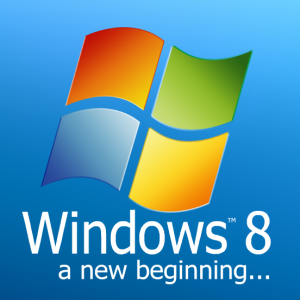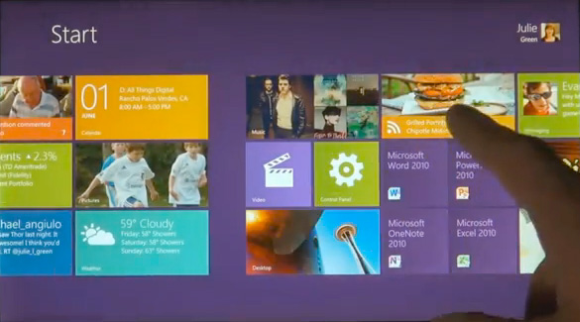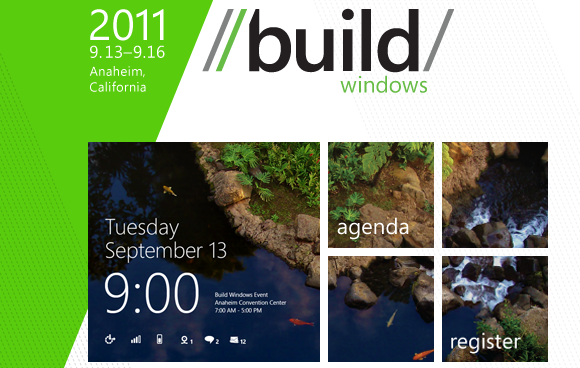No sooner had the dust settled over the bumpy transition from Windows Vista to Windows 7, than Microsoft started fueling interest around its upcoming new operating system, codenamed Windows 8. In June they previewed the new PC OS via the Microsoft YouTube channel, followed by a demonstration at the Computex 2011. Over the past year they have also provided BetaArchive and other sources with a steady leak of Milestone Builds. Windows 8 is expected to be released in the fall of 2012, only three years after the official launch of Microsoft's present flagship Windows 7.
Do you wonder what Microsoft has up its sleeve? In this article I have summarized the most important changes and new features, providing a brief overview of what you can expect to see in Windows 8. Will Windows 8 really be a new beginning?
Designed For Touchscreens
While Windows 8 is evidently designed to be compatible with touchscreens, it will of course support mouse and keyboard, making the transition for those not yet accustomed to touchscreens a little less stressful. On the other hand, touch technology is generally very intuitive to use and Microsoft's interpretation appears to be very smooth. So expect to use your mouse a lot less!
Metro Style UI Replaces Standard Desktop
In Windows 8, the standard desktop will be replaced by a Metro style user interface (UI). Metro is Microsoft's own design language, which was previously used for Windows Media Center and Windows Phone 7. On the new Start screen, desktop icons are replaced by tiles, which provide a compact and potentially live preview of the app. Using the touch interface, users can move to different pages of the start screen, much like in Google Android, or slide between open applications, which is a great improvement over the Windows Aero Flip feature.
You can see a thorough preview of how the Windows 8 UI will look and work in this video:
In an attempt to satisfy traditionalists, the standard desktop will continue to be available as an app.
Apps & App Store
In mid August Microsoft confirmed that Windows 8 is going to contain an App Store. This will provide users with a central location for searching and downloading software compatible with their operating system, rather than having to deal with the websites of individual software providers.
Moreover, Microsoft has revealed that the new Windows 8 platform is based on HTML5 and JavaScript, allowing web developers to code web-powered apps for Windows 8. Later this month Microsoft will introduce developers to the core concept at its BUILD 2011 conference.
This move shows that the line between desktop and cloud-based applications continues to blur.
Same System Requirements As Windows 7
There is good news for those eager to try Windows 8, but not keen on investing in new hardware. Microsoft announced that Windows 8 will have the same hardware requirements as Windows 7. It will run on Intel, AMD, and ARM based 32- and 64-bit chips with a minimum of 1GHz, 16G available hard drive disk space (32-bit) or 20GB (64-bit), and DirectX 9 capable graphics device with WDDM 1.0 or higher driver.
Why This Drastic Change?
Despite its slightly chipped reputation, Windows continues to be the reigning champion when it comes to shares on the personal computer operating system market (90+%). This is of course because every non-Mac computer comes with Windows pre-installed. The latest numbers from NetMarketShare, however, reveal that Windows 7 (30%) has yet to overtake its predecessor Windows XP, which remains to have a tight grip on over 50% of the market.
With the rise of affordable smartphones and tablets, the turnover for PC operating systems can be expected to slow down. There obviously is a lack of incentive to buy a new (Windows) computer, while the old one still works fine and novel gadgets compete for attention and financial resources. The one and only thing that is going to make a majority of customers switch from one OS to another is the hardware.
With Windows 8, Microsoft is not just presenting a revolutionary new Windows (although not entirely novel), but also a hybrid operating system that will run on a range of devices. One reason for this development certainly is that we continue to see a shift from old school immobile desktop computers designed to run huge software packages, towards mobile devices predominantly running internet-enabled and cloud-based applications. Microsoft is trying to stay on top of its game.
The Verdict
From what we can see so far, Windows 8 is a quantum leap. With the departure from the standard desktop and the focus on touchscreen navigation, it presents a revolutionary change over previous versions of Windows. The handling of apps appears to be smooth and intuitive and it will be interesting to see whether Microsoft managed to integrate this intuitive interface into deeper levels of Windows 8, such as the Control Panel. Unfortunately, previews of the Windows Explorer for example reveal much more traditional approaches. Nevertheless, I would say we shall all expect to be impressed as this should be a new beginning indeed.
If this post made you curious, you may want to follow the latest Windows 8 developments on these websites:
- Official Windows 8 Blog
- Windows 8 Beta
- Win Rumors
What are your personal expectation for Windows 8? Are you looking forward to using it or will you avoid it like the plague?




